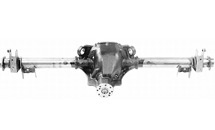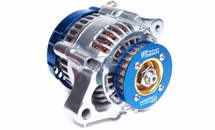| Stopping your Nissan 240SX is a tough task. And this hefty job is entrusted to its braking system. When you press on the brake pedal, the force that your foot has exerted is transferred into the caliper. The caliper will then press unto the rotors’ surface to create the friction that will bring the car to a stop. Between the brake caliper and the brake rotor is a third material, the component called as Nissan 240SX brake pad. |
| Originally, brake pads were constructed from organic materials held together by a resin. Some of other common materials used are cellulose, carbon, fiberglass and mineral fillers. Semi-metallic pads have grown in popularity today. They last longer than organic pads and are more appropriate for harder braking. However, because of the bits of metal used in them, they produce more noise when stopping. To reduce this noise, various improvements have been done in the construction of brake pads. |
| Brake pads are the most tortured components of the braking system. Because they are mounted in between the caliper and the rotors, they are the parts that come in contact with the surface of the spinning rotors. The force of the spinning rotors brings too much stress to the linings of the pads, causing them to become thin through time. Modern pads are equipped with a mechanism that emits a sound when the pads already reach the minimum limit of thinness. This is a warning to the driver that a replacement pad is already needed. |
| If you’ve been hearing a squealing sound in your braking system, better check your brake pads to determine whether they are already worn-out. And when you find out that they are severely worn, it’s wise to replace them with high quality aftermarket Nissan 240SX brake pads. That’s to ensure that you’re safe from danger that’s due to braking failure. |


